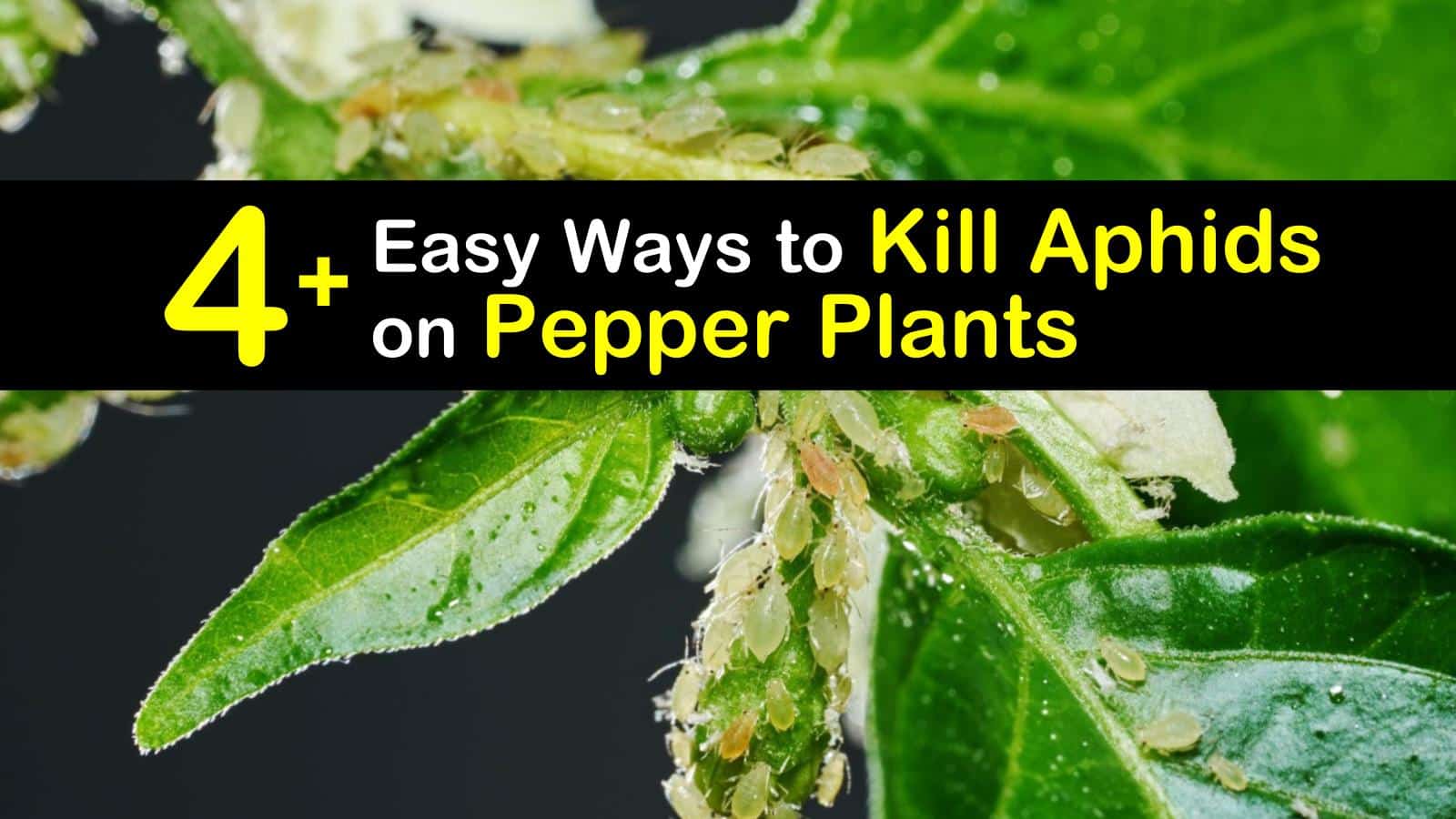Aphids are a common pest that can do serious damage to pepper plants. These tiny insects attach themselves to leaves and stems, sucking out plant juices An aphid infestation can quickly get out of control since they reproduce rapidly
While chemical insecticides are effective, many gardeners prefer natural solutions. Here are 7 natural ways to get rid of aphids and prevent them from harming your pepper plants:
1. Strong Water Spray
A simple but effective method is to blast aphids off plants with a strong stream of water. Use your thumb over the hose nozzle to create more pressure. Start at the top of the plant and work downward, spraying the undersides of leaves where aphids hide.
The force of the water knocks many aphids off so they can’t return. Repeat daily until the infestation clears. This works best for larger established plants, not seedlings.
2. Insecticidal Soap
Insecticidal soaps made from potassium salts of fatty acids can control aphid populations. Available in concentrates the soap disrupts cell membranes on contact and dehydrates the insects.
Spray plants especially the undersides of leaves, every 5-7 days. Two applications are often needed to kill juvenile aphids that emerge. Insecticidal soap works best on smaller infestations and is safe for most plants.
3. Neem Oil
Extracted from the neem tree, this traditional organic pesticide coats insects to interfere with feeding and reproduction. Look for concentrated neem oil and dilute it per label instructions.
Combine with a mild soap to help the oil stick to plants. Spray in the early morning or evening to avoid leaf burn. Repeated applications may be needed as it does not kill aphids immediately.
4. Horticultural Oils
Lightweight horticultural oils like petroleum oil smother and kill aphids on contact. The oil’s coating prevents them from breathing and feeding. Mix according to label directions and thoroughly spray plants.
Repeat application weekly for heavy infestations. Do not apply to stressed plants or in extreme heat. Oils work well on small pests but not larger ones.
5. Pyrethrin Insecticide
Derived from chrysanthemum flowers, pyrethrin insecticides are plant-based and break down quickly in sunlight. Available in ready-to-use formulas, they paralyze and kill insects on contact.
Spray in the early morning or evening to avoid harming pollinators. Avoid using near water sources. Pyrethrin works best on small pest populations, not severe infestations.
6. Diatomaceous Earth
This powdery natural mineral compound damages the waxy protective coating on aphids, causing dehydration. Sprinkle a fine layer on leaves and around plant bases. Reapply after rain or watering. Use food grade diatomaceous earth and avoid breathing dust.
7. Attract Natural Predators
Encourage beneficial predators like ladybugs, lacewings, hoverflies, and parasitic wasps. They feast on aphids and provide natural control. Plant flowers such as dill, yarrow and daisies which attract these insects to your garden.
You can also purchase live ladybugs or green lacewing eggs to release, but naturally occurring predators usually work best. Avoid broad-spectrum insecticides that kill beneficials too.
Other Tips to Control Aphids
-
Remove badly infested leaves and dispose of them away from the garden.
-
Use reflective mulch to deter aphids from plants.
-
Wipe or spray aphids off plants daily to control small infestations.
-
Rinse plants with a strong spray of water to knock off and kill aphids.
-
Apply sticky barriers like petroleum jelly or sticky tape near base of plants.
Stop aphids early before they reproduce and spread. Combining several natural methods often works better than a single treatment. With persistence, you can get rid of aphids organically and protect your pepper plants.
The REAL Way To Get Rid Of Aphids On Bell Peppers
FAQ
What is the best homemade aphid killer?
What is a home remedy for plant aphids?
What is the best natural repellent for aphids?
- A Complete Guide to Caring for Yuki Cherry Blossom Shrub - January 23, 2025
- Identifying Red Hot Poker Seeds: What to Look For When Harvesting Torch Lily Pods - January 23, 2025
- A Complete Guide to Harvesting Evening Primrose Seeds - January 23, 2025

